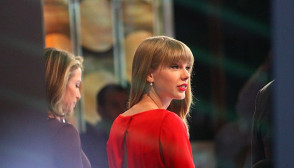WASHINGTON (Reuters) - Despite growing pressure from President Donald Trump to help overturn his election loss, Vice President Mike Pence plans to stick to his ceremonial duties and not interfere with the election certification when presiding in Congress on Wednesday, advisers said.
Trump ramped up pressure on Pence on Tuesday to block Congress' certification of the November election results in an ongoing attempt to stay in power, after dozens of lawsuits by his campaign challenging election results failed in U.S. courts.
But the vice president, a loyal lieutenant during the four years of Trump's often chaotic presidency, has no plans to attempt to do so, even as he seeks to show support for the Republican president's quest.
Pence is set to preside over a joint session of Congress on Wednesday as it receives the results of the state-by-state Electoral College that determines the winner of presidential elections.
President-elect Joe Biden, a Democrat, beat Trump 306-232 in the Electoral College and, in the popular vote, by more than 7 million ballots. Trump has declined to concede the election.
U.S. states have already certified the results, and Pence's role on Wednesday as president of the Senate is to "open all the certificates," in the presence of the House of Representatives and the Senate, the U.S. Constitution says.
Trump has suggested Pence could do more than that.
"The Vice President has the power to reject fraudulently chosen electors," Trump wrote in a tweet on Tuesday, his latest unfounded suggestion that the election was marred by widespread fraud.
Pence told Trump on Tuesday he did not believe he had the power to block the certification, according to a source familiar with the subject.
Trump's tweet came after pointed remarks at a campaign rally for Republican U.S. Senate incumbents in Georgia on Monday night, in which he expressed hope that Pence would intervene.
"If he doesn't come through, I won't like him quite as much," Trump said.
About a dozen Republican senators, as well as dozens of Republicans in the House, plan to object to the certification of the Electoral College results in Congress on Wednesday. The move has virtually no chance of overturning Biden's victory.
'WILL UPHOLD THE CONSTITUTION'
Current and former White House aides said the vice president planned to perform his ceremonial duties.
"He will be very supportive of the president, but again he'll stick to the Constitution," one former White House official who has regular contact with Pence's team told Reuters.
The vice president would make clear in his statements that he backs Trump, while sticking to the constraints of the role, the former official said.
"It is a ceremonial role. It is opening up envelopes and reading the contents of it," he said. "That's it."
Pence's chief of staff, Marc Short, told Reuters on Monday that the vice president "will uphold the Constitution and follow the statutory law."
On Friday, a Trump-appointed judge rejected a lawsuit brought by Republican members of Congress asking Pence to reject Electoral College results, saying they had no standing for such a suit.
One Trump adviser said the president had told others he would like Pence to fight harder for him.
The vice president has sought, so far, to express his support without repeating the president's false claims about the election. On Monday, during his own trip to Georgia, Pence said that Republican objections to the election would be heard, but he did not commit to taking action on them.
"I share the concerns of millions of Americans about voting irregularities. And I promise you, come this Wednesday, we'll have our day in Congress. We'll hear the objections. We'll hear the evidence," he said.
Following a pattern throughout their partnership, Pence has kept Trump informed about his thinking. The former adviser said Pence likely walked the president through the restrictions of his role, informed by a weekend meeting with a congressional parliamentarian.
(Reporting by Jeff Mason; Additional reporting by Steve Holland; Editing by Heather Timmons, Jonathan Oatis and Peter Cooney)










